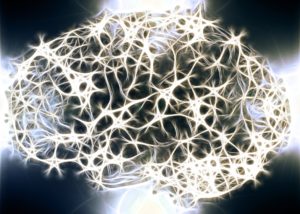
Dr. Mark Gold’s Research You Can Use
Individuals who love highly processed foods and often eat more than they intended, face a significant probability of experiencing addictive-like symptoms including withdrawal. This is what food addiction postulates. A recent study, conducted by the University of Michigan, has developed and evaluated the psychometric characteristics of the first self-report measure of highly processed food withdrawal.
Similar to a substance use disorder (SUD) construct, food addiction posits that highly processed foods that have added fats and/or refined carbohydrates, such as cakes, fries, chocolates, and pizza, may potentially emulate the biological (for example, dopamine signaling in the brain) and behavioral mechanisms (such as uncontrollable desires) as implicated in SUDs. Even though past studies have supported this theory, each diagnostic criteria of SUDs have not been thoroughly evaluated as being applicable to that of food addiction.
Withdrawals in SUDs and food addiction
Withdrawals were initially conceptualized as mainly focused upon physical symptoms such as sweating, vomiting and muscle cramps. However, psychological symptoms were later acknowledged as primary characteristics of withdrawals as the definition of SUDs widened to include drugs of abuse that did not necessarily produce strong physical withdrawal reactions.
In fact, psychological indicators of withdrawals such as anxiety, depressed mood, and irritability are more generally present across SUDs, whereas physical withdrawal symptoms differ depending upon the substance’s effect on the body.

Withdrawal symptoms resulting from all drugs of abuse seemingly reach their highest intensity between days 2-5 of an attempt to abstain or cut down, although the psychological indicators may persist much longer, even years, and tend to be more sensitive to cues.
Initial possibilities for withdrawal from highly processed food first emerged from animal model studies that observed physical and psychological withdrawal symptoms upon the removal of sucrose from rats’ diet after a period of addictive-like consumption.
However, the highly processed foods commonly consumed by humans, such as pizza, chocolate, and chips, have not been studied for their potential of triggering withdrawal symptoms in a manner identical to that of pure sucrose.
Food addiction is operationalized through the Yale Food Addiction Scale (YFAS), which utilizes the DSM diagnostic criteria for SUDs to mirror an addictive-like response to certain foods. Based upon YFAS, withdrawal has been endorsed by 18.5-29.7 percent of individuals from community samples and 26-54.9 percent of individuals in more clinical samples.
Collectively, existing evidence suggests the possibility of a withdrawal syndrome in food addiction and supports the usefulness of conceptualizing and evaluating highly processed food withdrawal in greater detail.
The study
The primary goal of this study was to operationalize highly processed food withdrawal through the development and assessment of the psychometric properties of the Highly Processed Food Withdrawal Scale (ProWS). This first self-report tool was adapted from the Wisconsin Smoking Withdrawal Scale and the Cannabis Withdrawal Scale in order to form a comprehensive assessment of all possible symptoms implicated with highly processed food withdrawal. Internal consistency and validity were evaluated.
 Two hundred thirty-one adult participants were recruited based upon the criteria that these individuals had dieted by cutting down on highly processed foods in the last year, which was necessary to experience withdrawal symptoms.
Two hundred thirty-one adult participants were recruited based upon the criteria that these individuals had dieted by cutting down on highly processed foods in the last year, which was necessary to experience withdrawal symptoms.
Participants were asked if they experienced sadness, irritability, tiredness, and craving following their most recent attempt to cut down on highly processed foods. Those who reported ‘yes’ were further questioned about the intensity and the symptoms experienced were evaluated in additional detail.
Similar to the time course of withdrawal symptoms in SUDs, withdrawals experienced by the participants were also observed to be most problematic between days 2 to 5 of attempted abstinence or cleaner eating. Associations with weight cycling and BMI were also explored to index frequency of cycles of quitting and relapse, and higher consumption of these foods, which have been important indicators of more intense withdrawal in comparison with drugs of abuse.
Around 26.8 percent felt tiredness, 35.1 percent experienced irritability, 26.8 percent had felt down, and 55 percent reported experiencing a craving for highly processed foods. For each symptom, the peak intensity was reported on days 2 to 3 for irritability, tiredness, and craving, whereas peak intensity for sadness was reported mainly on days 4 to 5.
Why is this important?
The ProWS is the only existing tool for evaluating withdrawal in the context of addictive-like eating and has emerged as a crucial next step in investigating the validity of the food addiction construct. Even more importantly, ProWS can help facilitate future research on the experience of highly processed food withdrawal and the underlying biological mechanisms. This study adds to the growing literature that affirms that highly processed foods can produce addiction-like symptoms in humans. Many people want to cut down on their processed foods and need help to do that rather than shame or guilt.
 The authors discuss the limitation of the study as depending upon the participants’ recall of their withdrawal symptoms which may hold room for recall bias and error. However, they believe the next comprehensive step would be to measure these symptoms in real time when participants are actually making an effort to reduce the consumption of highly processed foods.
The authors discuss the limitation of the study as depending upon the participants’ recall of their withdrawal symptoms which may hold room for recall bias and error. However, they believe the next comprehensive step would be to measure these symptoms in real time when participants are actually making an effort to reduce the consumption of highly processed foods.
If individuals can potentially experience withdrawals upon cutting down the consumption of highly processed foods, then this may exert important clinical implications. Future research is necessary to explore the associations of withdrawal symptoms further, as assessed by ProWS, may have with treatment retention rates. Introducing treatment options such as psychoeducation may prove highly valuable in shaping behavioral and coping strategies to manage such experiences.
References:
1. https://www.ncbi.nlm.nih.gov/pubmed/30227182
2. https://www.sciencedirect.com/science/article/pii/S0195666318306196
3. http://psycnet.apa.org/doiLanding?doi=10.1037%2Fadb0000136
4. Avena NM, Potenza MN, Gold MSWhy are we consuming so much sugar despite knowing too much can harm us? JAMA Intern Med. 2015 Jan;175(1):145-6. doi: 10.1001/jamainternmed.2014.6968.
About the Author:
 Mark S. Gold, M.D. served as Professor, the Donald Dizney Eminent Scholar, Distinguished Professor and Chair of Psychiatry from 1990-2014. Dr. Gold was the first Faculty from the College of Medicine to be selected as a University-wide Distinguished Alumni Professor and served as the 17th University of Florida’s Distinguished Alumni Professor.
Mark S. Gold, M.D. served as Professor, the Donald Dizney Eminent Scholar, Distinguished Professor and Chair of Psychiatry from 1990-2014. Dr. Gold was the first Faculty from the College of Medicine to be selected as a University-wide Distinguished Alumni Professor and served as the 17th University of Florida’s Distinguished Alumni Professor.
Learn more about Mark S. Gold, MD
About the Transcript Editor:
 A journalist and social media savvy content writer with extensive research, print and on-air interview skills, Sana Ahmed has previously worked as staff writer for a renowned rehabilitation institute, a content writer for a marketing agency, an editor for a business magazine and been an on-air news broadcaster.
A journalist and social media savvy content writer with extensive research, print and on-air interview skills, Sana Ahmed has previously worked as staff writer for a renowned rehabilitation institute, a content writer for a marketing agency, an editor for a business magazine and been an on-air news broadcaster.
Sana graduated with a Bachelors in Economics and Management from London School of Economics and began a career of research and writing right after. Her recent work has largely been focused upon mental health and addiction recovery.
The opinions and views of our guest contributors are shared to provide a broad perspective of addictions. These are not necessarily the views of Addiction Hope, but an effort to offer a discussion of various issues by different concerned individuals.
We at Addiction Hope understand that addictions result from multiple physical, emotional, environmental and genetic factors. If you or a loved one are suffering from an addiction, please know that there is hope for you, and seek immediate professional help.
Published on February 8, 2019
Reviewed by Jacquelyn Ekern, MS, LPC on February 8, 2019
Published on AddictionHope.com
